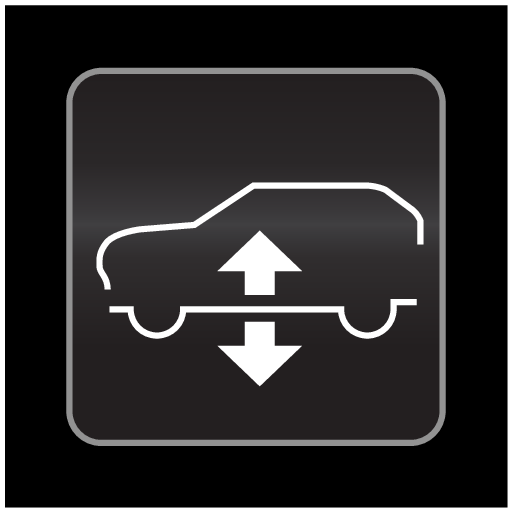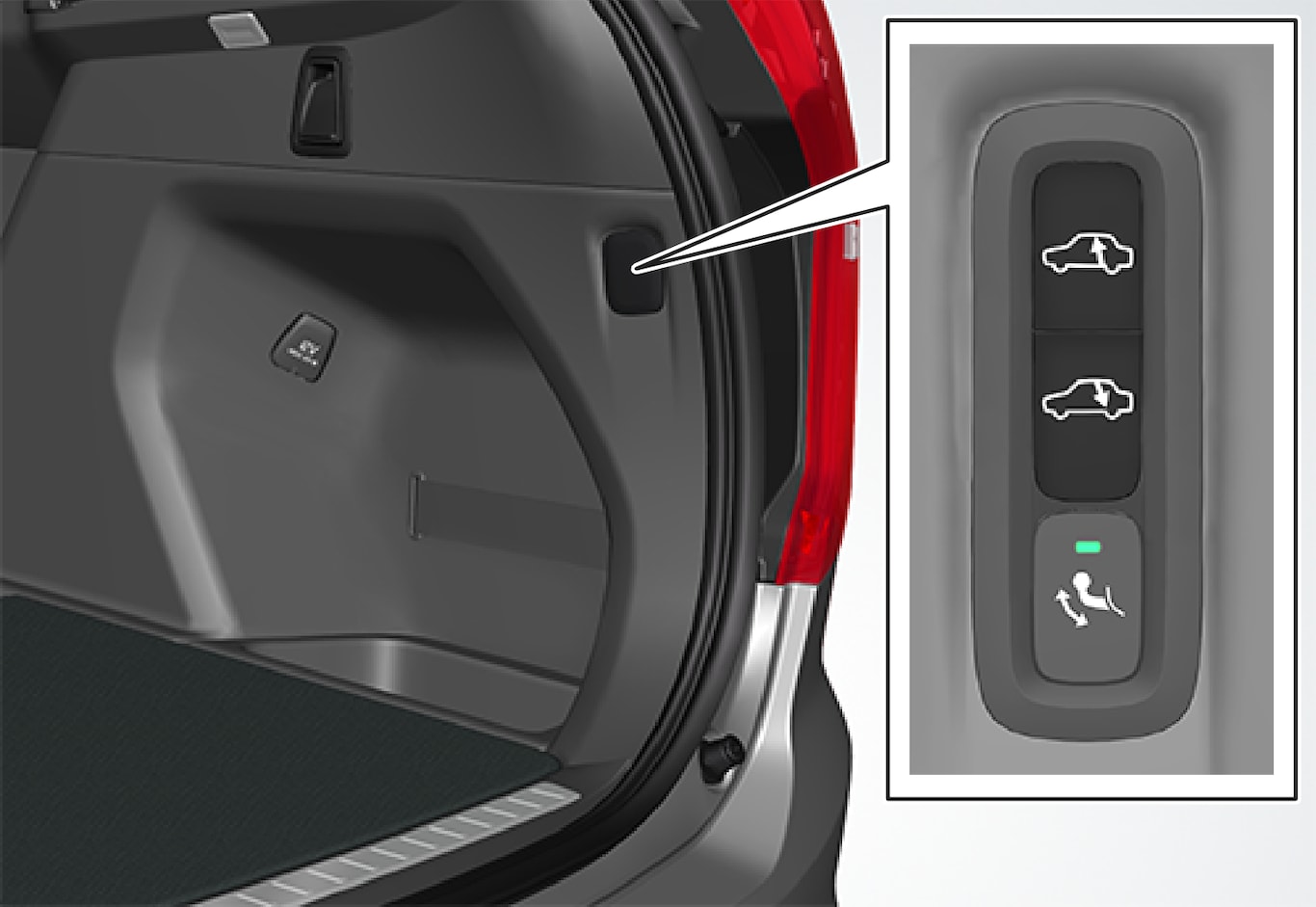Air suspension and shock absorption
The system is adapted according to the selected drive mode and according to the speed of the car. Using the air suspension, the car's ground clearance is adjusted to a lower level at higher speeds, which reduces wind resistance and increases stability. Shock absorption is normally set for the best possible comfort and is regulated continuously depending on the road surface, the car's acceleration, braking and cornering.

The driver display indicates when level control is in progress.
The level cannot be regulated when the bonnet or any side door is open.
Settings for level control
Entry assistance
The car can be lowered to facilitate entry and exit.
Activating entry assistance via the centre display:
Deactivation of air suspension and level control
In certain cases, the function must be deactivated, e.g. before the car is raised with a jack*. The difference in level created by raising the car with a jack can otherwise cause problems for the air suspension.
Deactivating the function via the centre display:
Loading mode

Use the buttons in the cargo area to regulate the height of the car's rear section and facilitate loading/unloading or when connecting/disconnecting a trailer. See the section "Loading".
During parking
During parking, make sure you allow adequate space above and below the car since the car's ground clearance may vary e.g. depending on the outside temperature, how the car is loaded, the use of loading mode or the drive mode that is selected after starting.
The level may also be adjusted a period after the car is parked. This is to compensate for any height changes that may occur due to temperature changes in the air springs when the car cools down.
During transport
During transport of the car on a ferry, train or truck, the car must be lashed around the tyres and not around other parts of the chassis. Changes in the air suspension may occur during transport, which could affect the lashing negatively.